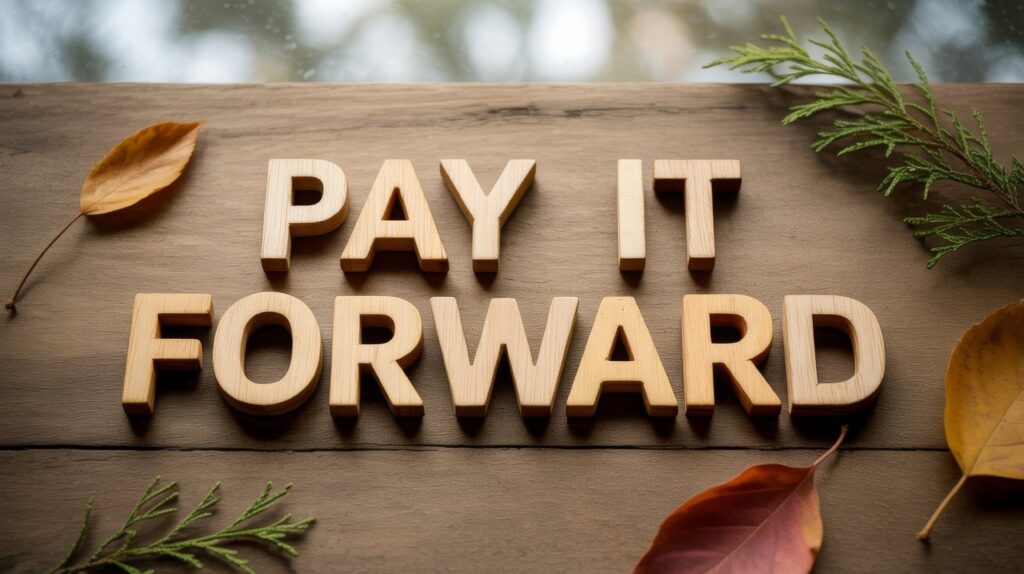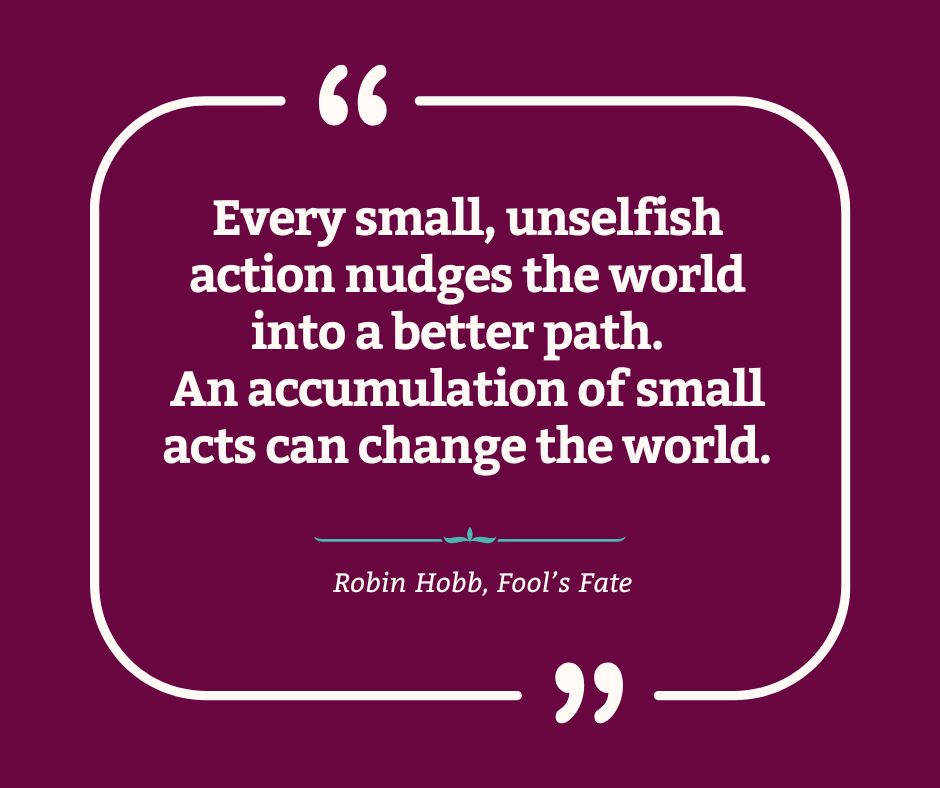Recently, I had the opportunity to help a neurodivergent friend with something that was incredibly difficult for them – not because of a lack of intelligence or motivation, but because of the way their brain processes certain tasks. For many, it would’ve seemed simple. For them, it was overwhelming.
And, as someone who is also neurodivergent, I understood exactly why.
So I helped.
They offered to pay me. I declined and simply said, “Pay it forward.”

That phrase has become something of a personal philosophy for me. Over the years, I’ve been supported by some truly kind people – often during moments when I was struggling the most and had nothing to offer in return. They stepped in without hesitation, without judgment, giving their time without any expectation of repayment. Their generosity meant more than they probably realised. It got me through.
I couldn’t pay them back. But I can pay it forward – by helping others in their moments of difficulty, just as I was helped in mine.
Understanding Neurodivergent Realities
Being neurodivergent means navigating the world with a brain that works differently – and that difference comes with both unique strengths and very real challenges.
Some might be exceptional in deep focus, creative thinking, or complex problem-solving. But seemingly simple tasks – like booking a medical appointment, responding to emails, or organising daily errands – can feel overwhelming or even impossible. Executive dysfunction, sensory sensitivity, social exhaustion, and chronic anxiety are not character flaws; they are neurological realities.
Sometimes we can push through. But it comes at a cost: cognitive fatigue, emotional depletion and, in many cases, burnout that takes days, weeks or even months to recover from.
This is why mutual support is vital. A little help – offered at the right time, without strings – can be life-changing. And those small acts of solidarity add up to something bigger: a quieter, slower kind of revolution.
Quiet Revolutions That Change Everything
Paying it forward is more than a one-time gesture – it’s a quiet movement made up of small, compassionate actions that shift the way we relate to one another. It’s about making the invisible visible, and recognising that true inclusion happens not only through formal policy, but through empathy in motion.
Here are just a few examples of what these quiet revolutions can look like:
The co-worker who quietly takes notes during a chaotic meeting and shares a clear summary afterward – knowing that real-time processing can be a struggle for some.
The friend who offers to make that stressful phone call – because navigating automated systems or cold-calling strangers can be mentally paralysing.
The manager who builds in asynchronous communication as a norm, not a special accommodation – because not everyone thinks, speaks, or types at the same pace, making an immediate response difficult for some.
The person who holds space without rushing to fix, who listens without judgment when someone is overstimulated or emotionally flooded.
The peer who notices someone struggling at a self-checkout, ticket machine, or public transit gate, and steps in gently and respectfully – without fanfare or fuss.
The team leader who starts a meeting by saying, “Cameras optional today” – offering autonomy and acknowledging the personal energy cost of constantly being “on.”
The colleague who offers to co-work or body-double during a hard task – not to supervise, but simply to create shared focus and comfort.
The friend who says, “Take your time. No pressure to reply right away” – honouring delayed processing or shutdowns without assuming disinterest.
These acts don’t require training or resources. They don’t require power or permission. What they require is awareness – and a willingness to act from understanding. And that’s what makes them revolutionary. Because we live in systems that often reward output, speed, and surface-level confidence. Many people who need help feel ashamed to ask for it. But when we normalise offering help without expectation, we make room for people to exist more fully, and more honestly.

A Chain of Kindness
Saying “pay it forward” isn’t about being selfless or saintly. It’s about honouring the chain of kindness that helped me survive the hard parts of my journey. It’s about saying: “I remember what it felt like to be stuck, to be drowning in something that others didn’t even see. I remember being helped. And now it’s my turn to pass that care along”.
For many neurodivergent people, especially those who are masking their struggles or have gone undiagnosed for years, the pressure to appear “fine” can be suffocating. Behind every successful moment may lie unseen hours of recovery or exhaustion.
Helping each other – genuinely without expecting anything in return – isn’t just a nice thing to do. For some of us, it’s a lifeline.
And when we pay it forward, the impact ripples outward. The friend I helped may one day be in a position to help someone else. And so on. We create an ecosystem of care. A culture of shared humanity.
Building a Kinder, More Inclusive World
Inclusion isn’t just about ramps and ticking boxes. It’s about mindset. It’s about shifting from “What’s wrong with them?” to “What can I offer?” It’s about listening deeply, offering flexibility, and showing up for one another in real, practical ways.
For those in leadership roles – managers, educators, team leads – this perspective is especially powerful. You don’t have to understand every nuance of neurodivergence to create space for people to thrive. You just have to lead with curiosity and kindness.
But even outside the workplace, we all have a role to play. In our friendships. Our communities. Our daily interactions.
Because the truth is, we’re all going to need help at some point. And the more we practice giving it – freely, generously – the more we make it safe for others to receive.
If you’re interested in how neurodivergent experiences shape empathy, you might also appreciate From Grief to Growth — a reflection on late ADHD diagnosis, self-compassion, and how personal struggles can deepen our capacity to support others.

In Closing
So no, I didn’t accept payment from my friend that day. I wasn’t doing them a favour – I was continuing a tradition. One act of kindness, passed from one person to another, in a world that sometimes forgets how much we all need each other.
If you ever find yourself in a position to help – especially when you recognise someone struggling with something invisible – I’m asking you to offer it. Without fanfare. Without expectation. Just because you can.
That’s how we build something better.
One quiet revolution at a time.
If you’re keen to learn more about how gratitude and kindness fuel cycles of generosity, read “Pay it Forward” on Greater Good.
